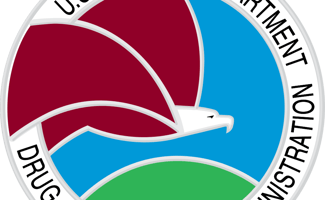APA Urges Expanded Telemedicine Prescribing Rules in DEA Listening Session

Telemedicine prescribing has expanded access to psychiatric medications—including controlled substances such as buprenorphine, which are crucial to fighting the opioid epidemic. So said psychiatrist Shabana Khan, M.D., yesterday during a public meeting hosted by the Drug Enforcement Agency (DEA) about its proposed regulations on prescribing controlled substances via telemedicine. Khan, who was invited to speak at the meeting on behalf of APA, is director of child and adolescent telepsychiatry at NYU Langone Health, an assistant professor of child and adolescent psychiatry at NYU Grossman School of Medicine, and chair of the APA Committee on Telepsychiatry.
The proposed rules would curtail telemedicine prescribing flexibilities extended to physicians during the COVID-19 Public Health Emergency, for instance by requiring an in-person visit for the prescribing of controlled substances. “Rather than a mandatory blanket requirement [for an in-person visit], the need for an in-person examination of a patient really should be left to the clinical discretion of a practitioner who has the knowledge, skills, and experience to make that decision,” Khan said. “Reducing flexibility in modalities of care increases inequity, forcing practitioners to cherry-pick patients that have the ability to travel to in-person care.”
She added also that telemedicine has not been shown to increase diversion of controlled substances.
The DEA sponsored the listening session, which began yesterday and continued today, after receiving more than 38,000 public comments in response to the proposed rules, the largest response to rule making in the agency’s history. The proposals appear as two separate rules in the Federal Register (“Telemedicine Prescribing of Controlled Substances When the Practitioner and the Patient Have not Had a Prior In-Person Medical Evaluation” and “Expansion of Induction of Buprenorphine Via Telemedicine Encounter”).
APA responded to the proposed rules in two March 31 letters to DEA. “Our recommendations focus on balancing common-sense safeguards for DEA enforcement of legitimate controlled substance prescribing without decreasing access to lifesaving treatments,” Khan said. She emphasized that existing standards and regulations provide a high level of oversight and accountability of prescribing practices.
Khan noted that a special registration for telemedicine prescribing, which the agency is considering, could allow practitioners to affirm their adherence to safe prescribing.
Finally, Khan urged the agency to formulate new rules quickly. “Practices and clinicians are already scheduling several months out for appointments,” she said. “If DEA waits to issue updated rules much longer, patient care will have to be rearranged and may be disrupted. Our recommendations reflect a shared commitment across mental health services to providing evidence-based, high-quality, and equitable care that uses every tool in our toolbox to address the opioid and mental health crises in our country.”
For related information, see the Psychiatric News article “APA Advocacy With Regulatory Agencies Has Been Crucial for Telepsychiatry.”
Don't miss out! To learn about newly posted articles in Psychiatric News, please sign up here.






